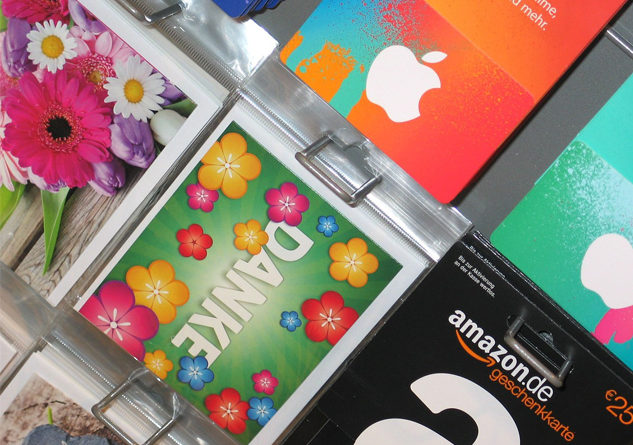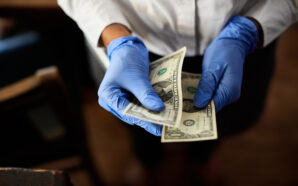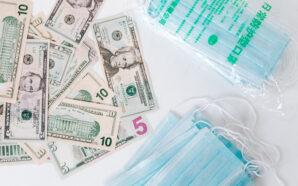The holidays are approaching quickly – meaning deadlines for gift-buying are as well! During this busy season, people often don’t have the time to find and buy the perfect gift for everyone on their list. The solution? Gift cards! According to a holiday shopping survey by the National Retail Federation, gift cards are the most popular gift items – 61% of those surveyed want them!
There are two main types of gift cards – retail gift cards that can only be used at specific establishments, and bank gift cards that function like cash and can be used almost anywhere. The former are usually free to purchase, while the latter often are accompanied by a purchase fee.
Gift cards are a great gift because of their ease and versatility. To make the experience even easier, the FTC put in place consumer protection measures for gift cards in 2010. The rules state that: money on a gift card can’t expire for at least five years; inactivity fees can be charged only after a card hasn’t been used for at least one year; and the expiration date must be clearly disclosed on the card and any fees must be clearly disclosed on the card or its packaging.
Although gift cards are a great one-size-fits-all gift, there are still a few things to consider when buying them. Your Better Business Bureau (BBB) recommends that you:
• Read the fine print. Search the card’s packaging and the card itself for any fees, expiration dates, and terms and condition. Some organizations charge service fees, or will limit the gift card to “in store only” purchases, making it useless for online shopping. If you’re buying the card by phone or online, verify whether there will be any shipping and handling fees.
• Start with trust. It’s important to buy from sources you know and trust. Avoid online auction sites – the cards may be counterfeit or obtained illegally. Retailers can cancel stolen gift cards or a criminal might resell a gift card they have already used. If you’re considering buying a card on a gift card resale site, be very careful. It’s impossible to verify the amount on the card or see if it’s expired. If you do go online, make sure to look up the business at bbb.org to view its rating, complaint history and reviews from past customers. It’s also important to make sure that the site is secure – look for the “https:”, where the “s” stands for “secure”.
• Examine the card and packaging for tampering. It’s common for thieves to record a card’s PIN and put it back on the shelf. They wait for the card to be bought and then use it online, wiping the value, before the customer has a chance to. The safest gift cards are those in a thick plastic casing. Make sure the packaging hasn’t been tampered with, and check the back of the card to make sure that the PIN number hasn’t been exposed and no protective stickers have been removed.
• Consider the retailer/bank. Consider whether the recipient will be able to use the card – do they live close to the establishment, and if not can they use the card online? It’s also important to consider the financial condition of the retailer or restaurant. If the store location near the recipient closes, it may be difficult for them to use the card. If the company goes out of business or files for bankruptcy, the card may be useless.
• Avoid scammers. Gift cards are also popular among scammers. One common sign that something is a scam is if you’re asked to pay through a gift card or prepaid card – usually bank, Amazon, and iTunes cards. In fact, so far in 2016, around 5% of those that reported losing money to a scam to BBB Scam Tracker paid the scammer with a prepaid card/gift card. Most trustworthy companies will never demand a gift card as any form of payment. If you get a phone call asking for such, hang up and report it to BBB Scam Tracker at bbb.org/scamtracker.
• Protect the recipient. Keep the receipt and give it to the recipient. If a card is stolen, a replacement might be issued if you have the receipt. If possible, register the gift card on the store’s website. This can help you find out about any card misuse and protect the card’s balance in case it’s stolen or lost.
• Don’t give out personal information. No trustworthy company will ever ask for personal information when you purchase a gift card. Consider it a red flag if you’re asked for personal details.






